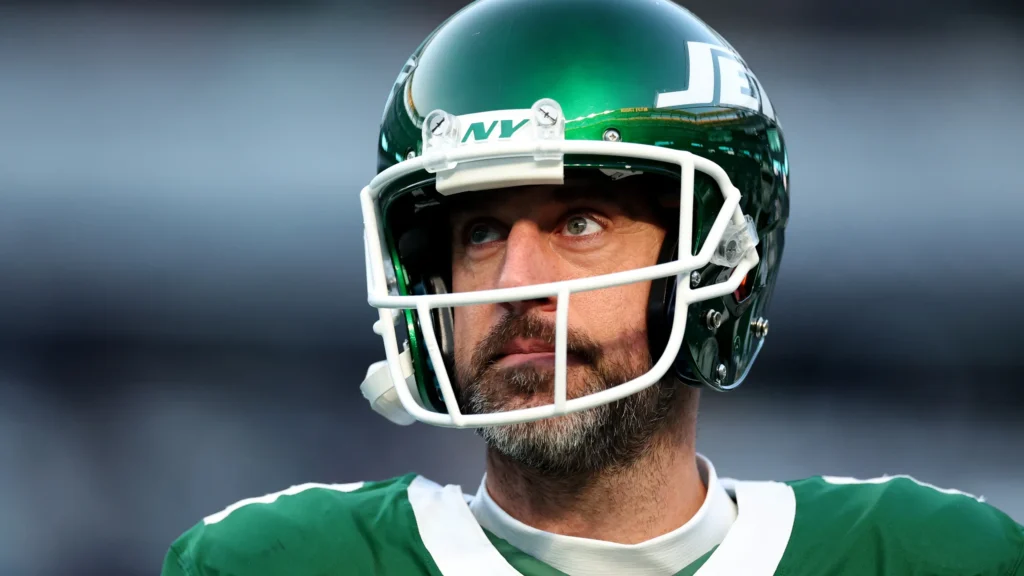Rugby
College Football Playoff Expansion Is A Solution Searching For A Problem
With the 12-team format barely tested, college sports leaders are rushing toward chaos with a 16-team playoff and an expanded March Madness without clear purpose or payoff

As the echoes of last season’s College Football Playoff (CFP) still ring through locker rooms and fan bars, a storm brews at the top. Power-hungry college sports executives are barreling ahead with a 16-team playoff plan — but few can explain why.
The 12-team CFP model, implemented just last season, was met with praise. It diversified the bracket, introduced on-campus playoff games, and gave deserving programs from across the country a shot at glory. Yet, even before fans could settle into the new format, SEC and Big Ten leaders started lobbying for another expansion — this time to 16 teams.
Their reasoning? That’s where things get blurry.
Unlike the NFL or NBA, which expanded their playoffs for tangible benefits like increased revenue and competitive balance, the NCAA’s logic seems rooted in self-interest and vague complaints. From SEC Commissioner Greg Sankey to NCAA President Charlie Baker, the rhetoric sounds like a boardroom echo chamber: We need change… because we need change.
At the heart of the madness is March Madness itself. Baker floated the idea of expanding the 68-team NCAA basketball tournament, citing snubs like Indiana State in 2024. But these snubs have always been part of the game — a reality accepted by all but those on the losing side of the bubble. The truth is, any expansion would likely favor large power conferences, not the overlooked mid-majors the expansion is supposedly designed to protect.
And the payoff? Hardly worth the noise. TV networks aren’t offering massive new deals for a few extra games between .500 teams. The revenue per team per round ($2 million) could even drop if diluted across more bids — potentially hurting the very schools expansion aims to uplift.
The CFP situation is even more puzzling. The 12-team format already delivers: access for all power conference champions, representation for Group of Five programs, and eye-popping matchups. But still, the SEC, bruised by only placing three teams in last year’s field, is pushing a narrative of injustice — even though their own schools underperformed in key matchups.
One anonymous administrator even mused about the SEC and Big Ten creating their own playoff, an idea that sounds more like an empty threat than a logistical plan. Such a split would invite political, legal, and operational chaos — far more than the current structure, which already hands these conferences the lion’s share of playoff revenue.
As college sports barrels toward unnecessary expansion, the actual problems remain unsolved: skyrocketing costs, NIL (Name, Image, Likeness) regulation uncertainty, and a student-athlete welfare structure still catching up to professional-level demands. But instead of addressing these, leaders are laser-focused on imaginary slights and the illusion of progress.
In essence, they are, as Francis Fukuyama might put it, “struggling for the sake of struggle.” Without a just cause, they invent one — and college football is about to pay the price.
Let’s be clear: A 16-team playoff might bring more games, but not better football. It risks watering down the regular season, devaluing bowl games, and stretching athlete schedules even thinner. All while failing to provide the financial or competitive uplift that would justify such disruption.
Expansion should be strategic, not reactionary. If last season’s 12-team playoff worked — and by most measures, it did — why not let it breathe? Why not fix what’s broken instead of tampering with what’s not?
Because in the corridors of college sports power, doing something often feels more important than doing the right thing.
Personality
Thiago Almada’s Net Worth Soars Amidst Record-Breaking Transfers and Stellar Performances
From humble beginnings to football stardom, the Argentine midfielder’s net worth reflects his on-field brilliance

Thiago Almada, the Argentine attacking midfielder known for his agility and playmaking skills, has seen a significant rise in his net worth, estimated at $5 million as of 2025. This financial growth mirrors his impressive journey through top-tier football clubs and international accolades.
Almada’s career took a pivotal turn when he transferred from Atlanta United to Botafogo in July 2024 for a record-breaking fee of $21 million, potentially rising to $30 million with add-ons. This move not only marked the highest outgoing transfer in MLS history but also underscored his rising market value.

At Botafogo, Almada‘s impact was immediate, contributing to the team’s victories in both the Campeonato Brasileiro Série A and the Copa Libertadores in 2024. His performances caught the attention of European clubs, leading to a loan move to Olympique Lyonnais in January 2025. At Lyon, he continues to showcase his talents in Ligue 1, further enhancing his reputation and marketability.
Almada’s salary reflects his professional success. During his time at Atlanta United, he earned a base salary of $1.65 million, with guaranteed compensation reaching $2.33 million. His current contract with Lyon, on loan from Botafogo, includes an estimated gross salary of €3.45 million for the 2024-2025 season.
Beyond club football, Almada has made significant strides on the international stage. He was part of Argentina’s squad that won the 2022 FIFA World Cup, making history as the first active MLS player to achieve this feat. His international experience adds to his market value and appeal to top clubs worldwide.
Almada’s journey from the streets of Ciudadela, Buenos Aires, to international football arenas exemplifies determination and talent. His growing net worth is a testament to his hard work and the high regard in which he is held in the football community.
Personality
Cam Heyward Net Worth Will Shock You With His $25 Million Fortune and NFL Legacy
The Steelers’ defensive powerhouse has built a $25 million empire through his NFL career and off-field ventures

Cameron Heyward, the stalwart defensive tackle for the Pittsburgh Steelers, has amassed an impressive net worth of $25 million as of 2024 . This substantial fortune is a testament to his enduring presence in the NFL and his strategic financial decisions off the field.
Drafted 31st overall by the Steelers in 2011, Heyward has spent his entire professional career with the team, becoming a cornerstone of their defense. His commitment was further solidified with a three-year, $45 million contract extension in 2024, which includes $29 million in new money and $16 million fully guaranteed . In 2025, Heyward is set to earn a base salary of $1.3 million, complemented by a $13.45 million roster bonus, culminating in a total cash payout of $14.75 million .

Beyond his on-field earnings, Heyward has diversified his income through various ventures. His philanthropic efforts, notably the Heyward House Foundation, demonstrate his commitment to giving back to the community. Additionally, his investments and endorsements have contributed to his financial portfolio, showcasing his acumen beyond the gridiron.
Heyward’s accolades include multiple Pro Bowl selections and All-Pro honors, reflecting his impact on the field. In 2024, he was honored with the Walter Payton NFL Man of the Year Award, recognizing his excellence both on and off the field .
As he continues to anchor the Steelers’ defense, Heyward’s legacy is not only defined by his athletic prowess but also by his financial success and philanthropic endeavors.
Personality
Aaron Rodgers Net Worth Will Shock You With His $200 Million Empire and Lavish Lifestyle
The four-time NFL MVP’s fortune spans record-breaking contracts, luxury real estate, and savvy investments

Aaron Rodgers, the iconic quarterback now leading the Pittsburgh Steelers, boasts an estimated net worth of $200 million, solidifying his status as one of the wealthiest athletes in the NFL. His financial portfolio is a testament to his prowess both on the field and in the business world.
Rodgers’ impressive earnings stem from a combination of lucrative NFL contracts and endorsement deals. Over his 20-year career, he has amassed approximately $380 million in on-field earnings, including a notable three-year, $112.5 million contract with the New York Jets in 2023. His recent one-year deal with the Steelers is reportedly valued at $20 million, further enhancing his financial standing .

Off the field, Rodgers has secured endorsement deals with major brands such as State Farm, Adidas, and Pizza Hut, earning an estimated $9 million annually from these partnerships. His business ventures include co-founding RX3 Ventures, an investment firm with a diverse portfolio, and holding a minority ownership stake in the NBA’s Milwaukee Bucks, making him the only active NFL player with such an investment .
Rodgers’ real estate holdings reflect his taste for luxury. He owns a $28 million mansion in Malibu, California, and a $9.5 million home in Montclair, New Jersey, showcasing his penchant for high-end living .
As Rodgers embarks on his tenure with the Steelers, his financial empire continues to flourish, underscoring his success as both an athlete and entrepreneur.
-

 Personality6 days ago
Personality6 days agoDonald Trump’s net worth reveals the fortune behind the former US President and business mogul
-

 Entertainment7 days ago
Entertainment7 days agoTop 5 Oscar Moments That Shook Hollywood and the World
-

 Entertainment5 days ago
Entertainment5 days agoJonathan Joss Shot Dead at 59 in Texas Tragedy His Husband Says Was Hate-Fueled Crime
-

 Tech1 week ago
Tech1 week agoTop 7 AI Tools Every Corporate Employee Should Use in 2025.
-

 Films5 days ago
Films5 days agoRobert Pattinson’s Top 5 Films That Showcase His Evolution from Teen Idol to Indie Icon
-

 Personality5 days ago
Personality5 days agoLionel Messi’s Net Worth Revealed and How the Football Legend Built His Multi-Million Dollar Fortune
-

 Films6 days ago
Films6 days agoJames Gunn’s Net Worth Revealed How the Filmmaker Built His Fortune
-

 Baseball MLB4 days ago
Baseball MLB4 days agoJac Caglianone Goes Hitless in Debut but Sparks Royals Comeback in Unforgettable MLB Opener




















